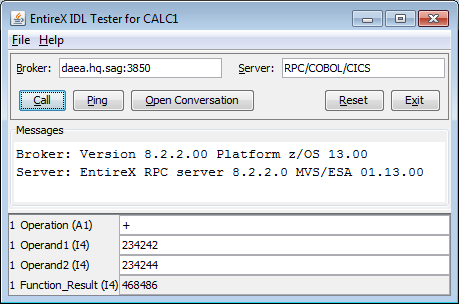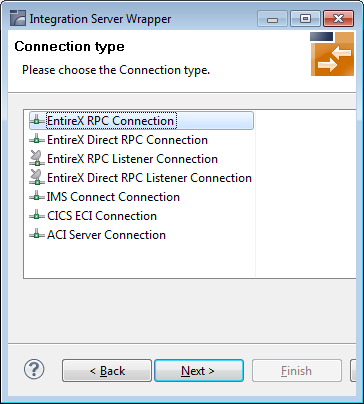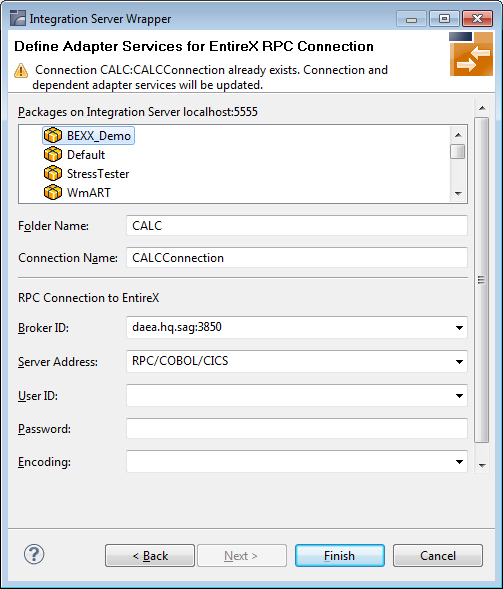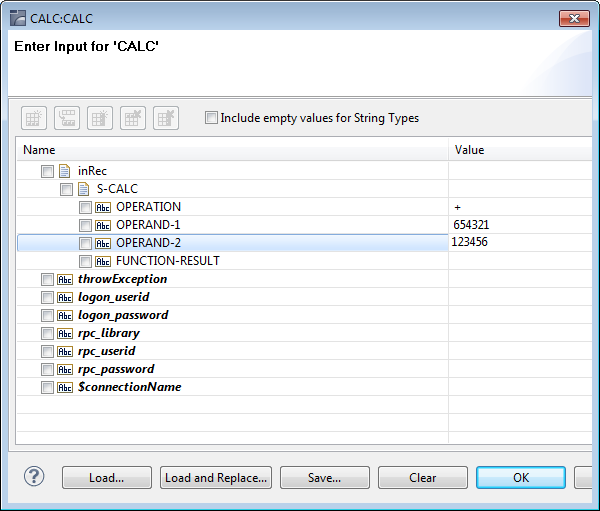This document covers the following topics:

This scenario makes the following important assumptions:
You have a working COBOL batch server. For illustration and examples on such a server, see Batch with Standard Linkage Calling Convention.
You have access to the related COBOL sources and copybooks as files on your PC. The minimum requirement is the DATA DIVISION of the interface. The sources and copybooks must be files on your PC or remotely stored in LMS libraries and accessed via
the Extractor Service (see the BS2000/OSD Administration documentation).
You have installed webMethods Integration Server and have a working IS instance and working webMethods EntireX Adapter.
You can call the COBOL server program at runtime using different methods:
For the EntireX RPC Connection method you need
an EntireX Broker on one of the supported platforms: z/OS | UNIX | Windows | BS2000/OSD | z/VSE (see separate documentation)
an EntireX RPC server, see Administering the BS2000/OSD Batch RPC Server
For the EntireX Direct RPC connection method you need the EntireX RPC server. See Direct RPC in the webMethods EntireX Adapter documentation and Administering the BS2000/OSD Batch RPC Server.
Follow the instructions for extracting COBOL, see Using the IDL Extractor for COBOL - Overview and choose Scenario I: Create New IDL and SVM if this is your first extraction. This process creates the following EntireX metafiles:
IDL file. A Software AG IDL file contains definitions of the interface between client and server. See Software AG IDL File.
SVM file (optional). The server-side mapping file (SVM) contains COBOL-specific mapping information. See Handling SVM Files.
Optionally, you can test the results of the extraction operation, using the EntireX IDL Tester.
For the EntireX RPC Connection and the EntireX Direct RPC Connection method (not possible for other connection methods), test the COBOL Server backend using Test Software AG IDL from the Workbench:

Note that the Broker and Server parameters contain the explicit route to call the server program, and you can optionally ping the connection from this client. See EntireX IDL Tester in the EntireX Workbench documentation.
Check the IS log, the EntireX Adapter log, or the RPC logs. Applies to all connection methods.
Select the IDL file, and from the context menu choose Generate webMethods Connection from IDL file.... From the wizard, select an Integration Server instance and select the connection type.

Then select the namespace where you want to write the services to, and specify the connection properties.

Choose . The connection service will be automatically enabled in the Integration Server.
From the Service Development perspective, refresh the package where the connection service was written, select the Adapter service, and use the service test to Run Service:

This invokes the adapter service through the connection service.
In case of error or unexpected results, use the IDL Tester as described under Step 1a above.